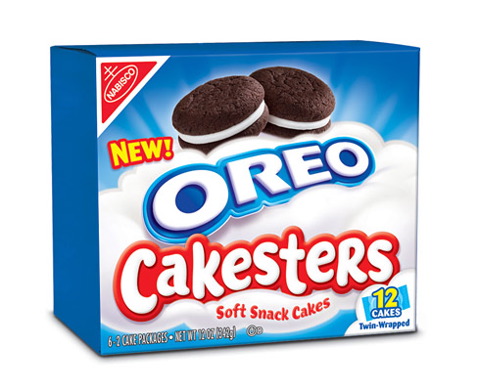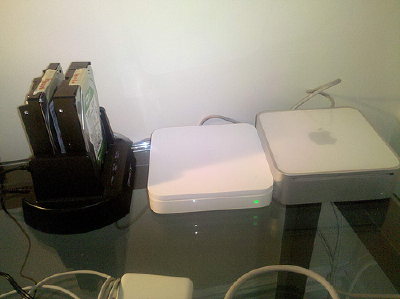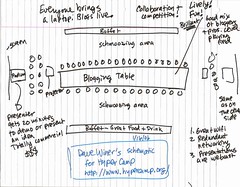
 Trouble at Twitter?
Trouble at Twitter? 
Not sure what's going on, if this is for everyone, or just a few, or just me.
The last update in my timeline is 8 hours old.
But some people are getting updates, because I've gotten replies to some of my messages.
No mention of the problem on status.twitter.com.
Update at noon: They have something about it at the status site.
1:PM: My timeline is back.
 Citizen coverage of Hawaii tsunami?
Citizen coverage of Hawaii tsunami? 
Like 23K others, I'm watching a live stream of a Honolulu television station previewing the tsunami that's likely to hit Hawaii in the next couple of hours.
I wondered on Twitter if any of the news orgs are launching helicopters to provide a view of the surge making landfall.
Brian Stelter of the NY Times notes: "we're about to watch a tsunami reach shore live on TV via Hawaii's local stations. Has that ever happened before?"
Tommy Russo is going to stream the tsunami landfall from Paukukalo on Qik.
I started a photo feed that tracks "tsunami" -- there are already 3 pics in the feed.
If you have any info on media coverage of the landfall please post a comment here.
Obviously safety comes first. But it also seems like an opportunity to make some media history.
 Caprica and repurposed virtualities
Caprica and repurposed virtualities 
As you may know I'm a big fan of Battlestar Galactica, as I'm sure many of you are. I was satisfied with the ending of the series, but of course disappointed that I had to give up the habit. There really hasn't been anything to fill the void.
Now I'm starting to watch the spinoff series, Caprica, which is a prequel to BSG. In it, the lead character Bill Adama is a little boy. There are lots of interesting characters, and they show you how Cylons got started, we're even there for the moment when the term was coined. Very nice touch.
But there's something very clever in the series that just hit me, when I was thinking about something we could do with EC2. And it's also like the little podcasting experiment we did in May 2005, with two songs -- Dixie and Green Acres. Let me explain.
It started with a website for kids that has beautiful MIDIs of famous songs for kids to sing along with. I'm kind of a big kid, so I played Dixie during one of my podcasts from the beach in Florida, and sang the words over the melody. Then Rogers Cadenhead had a great idea -- he joined me in a chorus. Then Kosso joined in. Amy Bellinger and on and on. Most of the intermediate versions are gone, but Rex Hammock's survives. It's really something.
Then I found a version of the Green Acres theme song. I played it on my stereo and sang the male part. Then I uploaded it. (I said in the blog post, "don't worry you'll know what to do.") Amy Bellinger played my version, and recorded the female part. It's all very low-tech, but it's kind of wonderful.
 Now to Caprica. Like a lot of science fiction serials Caprica has virtual worlds. You put on some fancy glasses and visit an alternate reality where people do things they can't do in the physical world. But there's a twist. One of the characters figures out how to pack up a whole virtual reality and make it a product. Hard to explain, I guess you have to watch the show. (I don't want to explain too much, no spoilers.)
Now to Caprica. Like a lot of science fiction serials Caprica has virtual worlds. You put on some fancy glasses and visit an alternate reality where people do things they can't do in the physical world. But there's a twist. One of the characters figures out how to pack up a whole virtual reality and make it a product. Hard to explain, I guess you have to watch the show. (I don't want to explain too much, no spoilers.)
But then I thought about EC2 and the nice things you can do with operating systems.
They give everyone the power to create their own version of Windows and share it with others. Granted, that's not the kind of thing too many non-techies, or even techies, wake up in the morning with an overwhelming desire to do. But why not? I'm still getting used to the idea of creating my own versions of Windows, haven't even released anything yet. But since everything I'm building is open source, there's no reason someone couldn't take my package, make some changes, and then redistribute it with their customizations. Trust obviously becomes a pretty important issue here.
 Big change in the tech world
Big change in the tech world 
 The moral of the story of the Facebook patent and all the recent news from Apple and Google: Tech companies are no better or worse than big companies in other industries.
The moral of the story of the Facebook patent and all the recent news from Apple and Google: Tech companies are no better or worse than big companies in other industries.
They are all about keeping the stock price high, growing at the expense of their competitors, and the role of users is the same as customers in other industries, you're a source of revenue.
Something wonderful happened when the Internet broke through a similar logjam in the early 90s. But that's now a distant memory. A new generation has come of age. The students I work with at NYU were small children when the Web grew out of the ruins of the PC business. They don't have any memory of what it was like before.
Further, the tech companies of today are much larger and more influential than the leading tech companies of the early 90s. Today the music industry's content flows through Apple's servers. Apple is poised to play a large role in the distribution of all other forms of media. Google is huge, as is Amazon and Facebook. And the people running these companies are far more experienced and/or competent than those who were running the industry the last time there was a user takeover.
My thinking has changed recently, as Google's moves with Buzz have surfaced, and Apple's moves to control sexual imagery in the the app store, as they embark on an ugly and dishonest campaign against Flash. Patents are nothing new. Last year, Google patented some very basic technology we created in the first wave of RSS apps. Another company was granted a patent on podcasting. It goes on all the time. What is different is that tech companies are taking a more active interest in the content that flows over their networks, and are doing less to protect their users. Sometimes they're the ones attacking users. Just like other industries.
Think about how you're treated by airlines. By insurance companies. If you have to go to a hospital. That's the kind of relationship you have with Apple, Google, Amazon, Facebook, Microsoft, Oracle, IBM, etc. Sooner or later there will be a massive oil spill or a massive network-wide security breach. Expect these companies to be every bit as bad as the ones in other industries. Probably worse because they've come so far without much oversight or scrutiny. Recently Google was given permission to trade energy. Who are these companies? We have no idea.
If you want to know what you can do, great -- there are things you can do. Buy your own services and put your content in places where you are treated like a customer with rights that are respected. That's still possible. In many industries it's no longer possible, but you can get that kind of service on the Internet now, but you have to pay for it.
If you're in the media industry, stop partnering with the tech industry, and hire away some of their best people and give them power to run your business. This is how your boat will stay afloat. Pretending these companies are your friends is ridiculous. They don't care about you. Look at how well they're doing monetizing your content. This is probably what you need to learn to do, and there's no time to learn. Hire their people away and get ready to compete.
And when you have a choice between using the product of a small company or a large one, give the small one a chance. This helps protect choice and diversity. And if someone creates something new, and they are not working for a big company, celebrate that, make them famous, make sure everyone knows. The myth is that the only new stuff comes from big companies. That's never been true. The only way to change that is to make sure people hear about the new stuff that comes from individuals.
 Dropbox, AFP and the Olympics
Dropbox, AFP and the Olympics 
One of my favorite phrases in tech, after "really simple" is "just works." Here's a story of some stuff that took about five minutes to hook together, and of course as you must have guessed, it "just works."
If you recall, we have an experimental feed of photos from Agence France-Presse. They are available through the River2 aggregator, which in addition to being a news reader is also a podcatcher and a photo-catcher. It's all really simple, I just use RSS and enclosures as we do for podcasting, and it all "just works."
Another thing that "just works" is Dropbox. It's such a great product. I keep thinking of new uses for it. I had a thought last night, wondering if there was a way to allow everyone to have access to one of my folders so I could flow pictures from the Olympics, for the next few days, out through the web. I poked around the site and found they planned for this.
So here's a folder that's updated as pictures are available, with photos from the Olympics.
It's got a long url, so I shortened it (hint to Dropbox, it might be nice if these had shorter URLs).
You may see some pics with question marks, that's because my machine is still synching up with Dropbox. Refresh the page, it should clear.
PS: I really hope Google doesn't buy Dropbox, but I fear they will. :-(
 NYT and NYU partner on East Village site
NYT and NYU partner on East Village site 
 When I started at NYU, I said there was a project I was going to help with, but I couldn't talk about it. Now it's been announced. Here's the press release:
When I started at NYU, I said there was a project I was going to help with, but I couldn't talk about it. Now it's been announced. Here's the press release:
NYTimes.com to Collaborate with New York University for 'Local' East Village Community Site.
That's why I started an East Village aggregator, to follow what the local bloggers are writing about. The community site will incorporate work of NYU journalism students and members of the community. Further, there are computer science students from NYU participating in the project.
My role is simply to help the students when I can, and of course to learn from the process myself.
Jim Posner asks the question I would probably ask if I were outside this project -- what about the paywall. I've never asked the question myself. I assume this site is outside any NYT paywall. My own opinion is that the Times will never actually implement the paywall. That's the nice thing about being in academia, I can say what I believe. ![]() ">
">
 When to be worried
When to be worried 
When big pieces of our culture flow through one company's servers.
And when suddenly, that company takes an interest in the ideas that are expressed in that culture, shutting off certain ideas, without explanation, without answering questions.
And when that company shuts off alternate channels for that culture to flow, with nonsense like they're being "open..."
That's when it's probably beginning to be too late to be worried.
 What we don't understand
What we don't understand 
It would be easy to read this and feel superior, but don't.
Imagine you knew nothing about computers and somehone handed you a Macintosh and told you to figure it out.
How long would it take you to figure out what each of the applications did, or even what an application is, and how they differ and how they're similar.
Suppose you found your way all the way to WordPress, think about how many layers of menus and user interfaces you had to master just to get there.
There's the menubar at the top of the screen. The dock at the bottom of the screen. Then, when you launch the web browser, there's a new menu at the top of the screen (and did you notice or did you just think it was the same menu). Then when you get to WordPress, it has its own menu at the top of its screen. But above that menu there are things you click that kind of act like menus that take you away (toolbar icons). WordPress has several kinds of menus. The one running across the top of its screen and the one running down the left.
Okay, someone told you to click OK when the machine asks you to install new software. You have to enter your special password to get it to do that. But don't click OK when you're at a web site or in an email. How do you know which you're in?
And icons. Sometimes you click them once and sometimes you click them twice.
You don't see all of these layers of complexity either because you were around when each one came online (I was) or you just forgot what it was like to be presented with it for the first time. I have no idea what it was like to be a child who had these things since before they can remember, but I know a few undergrads at NYU who I'm going to ask about this.
My mother, on the other hand, has been using computers since before they were born, she started with the Mac in 1985 or so, but like someone who learned to speak another language as a child, she sees the bewildering complexity of our language whenever she does things that we take for granted.
You might say don't worry, her generation won't be here much longer, but that's my mom you're talking about. And further, how much effort are we wasting pushing around all these unnecessary concepts? Too much.
 Does it matter who you get news from?
Does it matter who you get news from? 
We had an interesting meetup at NYU last night, the first in what may become a series of Thursday night meetups patterened after the meetups we had at Berkman in 2003 and on.
The meeting was supposed to follow the BloggerCon rules of moderation, but most people don't know about these, so it takes a while before it feels normal. I had that experience trying to boot up BloggerCon-style meetings in Nashville and Palo Alto. If the people don't know how it works, it just doesn't work.
So about half-way through the meeting I stopped moderating and let the discussion go where it would naturally go. And I learned something from this. I guess that's not surprising.
In Silicon Valley, if you let a discussion wander, it ends up centered on the point of view of the technology industry. You have users and they generate content. Everything revolves around that model. It's pretty inhuman, because the people who do the generating are sometimes "experts" who invest their whole lives in understanding stuff, and then want to share it with others because that's what humans like to do, even if they aren't being paid. Of course the tech companies are all about being paid, for doing what they do. The users are like hamsters on a treadmill. Do you ever think about paying hamsters? I don't think so!
Okay, everyone says NY is where the future is. I'm afraid this might become hype just like the story you hear about Silicon Valley. It's a way of saying the rest of the world doesn't count. Of course people like to think that they live in the one place that makes a difference, it's simpler that way. The world is so complex, who wouldn't want it to be simpler. But who would be happy if they thought the center of the world was somewhere else? So the battle is constant. And for a while people believed the center was in Silicon Valley. I think the worst thing in the world is to live in the center. There's no where to go but down from there. Upside is better. So I choose to think where I live is somewhere off-center. It's also more interesting.
So when the New York conversation drifts, it doesn't end up where the Silicon Valley conversation ends. I guess this is no surprise, right? Where it ends up is with the (forgive me I don't know the terminology) the guy writing the story that informs everyone else. Who is everyone else? It's the hamsters again! This time the hamsters, instead of generating content, are generating revenue! They're clicking on the tip jar, causing micropayments to flow to the author (and his or her editors) so they can earn a living while informing all the other hamsters who are happily paying for all this good stuff. But what happens if the knowledge that everyone wants isn't in the reporters' heads but rather resides with the hamsters? What then?
In the past there was a simple answer. No sale. The information just doesn't get there. But that answer is no longer good enough.
Two cases in point. One, the prototype -- This American Life did a special called Giant Pool of Money -- which should win a Pulitzer for explaining the financial crisis of 2008 in terms anyone with a mind could understand. Everyone who heard it probably remembers exactly where they were when they did. I was walking on Marin Ave in Berkeley. It was great. Before I heard it I had no clue what the financial crisis was about. After hearing it, I got it. And everyone agrees -- we need more of this. But, I found out last night, much to my chagrin, that it took months to produce this episode. And there's the rub, and why the people who are invested in the NY-based system are so enamored of this example, because it proves that You Need Us. Without heavily and expensively produced content, they say, you won't be informed.
So I provide a counter-example. One that fits my model, which I proudly think of as being neither Silicon Valley-centered or New York-centered. I (of course) think my model is reality-centered. (Yes, I am arrogant, I cop to it.)
The counter-example is this. A fantastic FreshAir episode, one hour in duration, recorded live, with almost no production, that completely explained the options for universal health care in the US just as the debate was beginning. It was timely, complete, wonderful and super-inexpensive. Why? Because an individual did all the work. It was paid for by a publisher of course, and he is a professional writer, so while it was expensive, it's part of a reservoir of value that thinkers on both coasts tend to ignore, and in doing so, I think -- miss where the answer is going to come from. The question is -- how will we satisfy the enormous thirst people have for information when the economics of information no longer support vast budgets, or vast amounts of time, to produce expensive wonderful programming like Pool of Money. The answer: From the sources. The people who know what's up.
Sure, This American Life produced something sexier, with great production value, and FreshAir is a talk show. But it was still riveting. I remember where I was when I listened to it (driving from Santa Cruz between Los Gatos and Fremont). I found, last night, when explaining it, I could name each of the models the author described, and it's been six months since the program aired. It obviously made as much of an impression as Pool of Money did.
So the moral of the story is that neither coast has the answer, but the answer is out there all the same. Let's not gravitate to an assumption that the cursor has moved 3000 miles to the east and bring all our sloppy thinking habits with us. We have minds, let's use them, and our minds have information, and let's distribute it, to whoever wants it, no matter where it comes from.
 2nd Ave Deli
2nd Ave Deli 
 Sitting in a Starbucks on 2nd Ave at 9th St. I knew this place was here cause I used to stop in after eating at the 2nd Ave Deli, which used to be a block away.
Sitting in a Starbucks on 2nd Ave at 9th St. I knew this place was here cause I used to stop in after eating at the 2nd Ave Deli, which used to be a block away.
What's there now? A Chase branch. The kind with no people in it.
Not saying anyone did anything wrong, just thinking about how the universe allocates real estate, and how it's changing. I know the 2nd Ave Deli re-opened uptown, on 33rd betw Lex and 3rd. Not on 2nd Ave. It's a Jewish soul food restaurant, very much about people. Chase? Who knows what that is anymore. A subsidiary of JP Morgan? A bailed out government agency with the name of an old bank. Where was the government when the matzoh ball soup and pastrami needed bailing out?
 The 20-minute rule
The 20-minute rule 
 I have a rule, formed by many years of experience, that I wait for 20 minutes, then I leave.
I have a rule, formed by many years of experience, that I wait for 20 minutes, then I leave.
Before I had the rule, I'd never know when to leave when someone was late because it's impossible to know how late they're going to be.
A couple of extreme examples.
1. In 1990 or 1991 (approx) I had a meeting with a vice-president of Apple. It was hard to get the meeting, and my company desperately needed their cooperation because Apple was fudding our product, basically keeping developers from building on it. I flew back to Calif just for the meeting. I was on time. His secretary kept calling the restaurant saying he was on his way, but he never came. I waited three hours before giving up.
2. A few years later I had a meeting with a division manager of Microsoft at a Portola Valley restaurant. I waited and waited. A half-hour after the appointment I ordered. Ate my lunch, left an hour after the appointment. An hour after that I get a call from the restaurant asking where I was. (This was a meeting I totally didn't need, I was having lots of success without Microsoft. I felt I was doing him more of a favor than he was doing me.)
Those were two extreme examples, but people are regularly late. I am late too, sometimes, and sometimes I'm more than 20 minutes late, but it's very rare. In my experience you have to mean it to be that late. So I have a hard and fast rule. After 20 minutes I leave. That takes the guesswork out of it.
There's a very practical reason. If someone is very late, all they're going to talk about is how sorry they are. The person who was on time says "It's no big deal," but nothing ever gets done at those meetings. Much better if you just say "I have a rule" and blame the rule for the fact that you weren't there when they finally arrive.
I thought this kind of disrespect was just a west coast thing, but it's part of east coast culture too. I've never written this rule up, now I have. Please, if you make an appointment with me, try to be on time. And if you're more than 20 minutes late, you'll find I'm not here.
 Google did something seriously wrong
Google did something seriously wrong 
"Privacy" seems like such an abstract concept.
So your privacy was violated. Get over it.
 Here's what happened. When Google rolled out Buzz last week they activated an unknown number of users and chose people for them to follow automatically based on who they email most frequently with. Presumably these people had to also be on Gmail. And the list of people you follow is public. Therefore the list of people you email with most frequently is now public. They are now trying to close this hole as quickly as possible. But the damage is done, people have to realize that -- the information was already disclosed. You can close the door after the horse gets out but that doesn't get the horse back.
Here's what happened. When Google rolled out Buzz last week they activated an unknown number of users and chose people for them to follow automatically based on who they email most frequently with. Presumably these people had to also be on Gmail. And the list of people you follow is public. Therefore the list of people you email with most frequently is now public. They are now trying to close this hole as quickly as possible. But the damage is done, people have to realize that -- the information was already disclosed. You can close the door after the horse gets out but that doesn't get the horse back.
This never should have happened. But now that it has, it requires a CEO-level apology and statement of contrition and an explanation of what policies he's putting in place to be sure this never happens again.
That has not happened, and does not appear likely to.
What if it were Eric Schmidt's privacy. I wonder if he'd feel differently. I wonder if he uses Gmail, and if he does, did they reveal the list of people he emails most frequently? I can think of all kinds of problems that might cause, with the stock market, or the SEC, partners, wives, despots, girlfriends. I imagine Nick Denton at Gawker would like to see that list, and that Schmidt would not want him to.
We all have those kinds of concerns. People might get the wrong idea if they saw the list of people I email most frequently. Or they might get the right idea.
Sometimes as I'm entering a message into Gmail, I wonder if the ethics of Google prohibit them from reading the mail. Sometimes I email with execs at companies that compete with Google. I think "They'd probably like to know this." I wonder if they look.
Yet Google, so far, has only said they're sorry for the "concern" they've caused. That shows that they're not owning up to the breach they caused. They can't possibly be so stupid as to not understand what they revealed about users of Gmail. It's just the kind of weaselly response to a building crisis that PR pros tell you not to do, that covering up will only make it worse when people realize what's really been going on. But that assumes a competent and vigilant press. That would be too much to assume in the case of Google and its coverage.
The Don't Be Evil smokescreen was pure brilliance. As Michael Gartenberg said on Twitter, if Microsoft had done what Google did, there would already be lawsuits. It would be a scandal of huge proportion.
The NY Times won't call it a breach of trust by Google. Instead they attribute the claim to "privacy experts." I raised this point, and predictably people say that the Times shouldn't make factual statements about companies who screw up anywhere but in editorials. That's ridiculous. A fact is a fact, and belongs in reporting. It's a fact that Google revealed sensitive information about millions of users, and now they're scurrying to try to cover it up. And the press is helping them buy time. Why? I have no clue, but I don't like it.
 Walked the Highline
Walked the Highline 
I walked the length of the (unfinished) Highline today. It was great. Just wish it went all the way to 34th St. Much easier walk than on sidewalks. You don't have to stop for anything. ![]()
 Morning coffee notes
Morning coffee notes 
 Been a while.
Been a while.
Google says there's been over 9 million Buzz posts and comments so far. Impressive. But there hasn't been a single link in my tweet-stream from Buzz, except for the one I posted, when I first tried it out (and quickly shut off when I saw the mess it created in my Gmail inbox). What does this mean? Well, it hasn't gone viral, at least to the people who I follow on Twitter.
Fred Wilson, an investor in a bunch of companies in the BuzzSpace, has his review.
Wondering if anyone is thinking of creating a wonderful webmail product that's just webmail, no tricks. With Google-quality spam filters. I'd pay $100 per year for the service. But no tricks! I don't want any new products to launch through your product. I don't want to reach into my email box one day and find a snake! ![]() ">
">
In other news, Mike Arrington says TED is a sleeper.
Last night Twitter sent out an update on oAuth. They saved the best for last. In June they plan to turn off Basic Authentication in favor of oAuth. They say developers should hurry up and switch now so they don't have to panic come June-time. But they don't say which oAuth developers should adopt. Problem is there are three, and Twitter says, in the very same email, that they like all three. I hear that a lot of people at Twitter read my posts, so please read this: I suppose it's okay to turn off Basic Authentication, if you really must. You're going to lose some apps when you do. I won't convert very many of mine, but at least I can since I've implemented oAuth 1.0. But I'm not in any hurry to implement the others for a couple of reasons: 1. They're moving targets. 2. I'm not investing much time in Twitter development these days, I'm busy with other things. So come June, a bunch of my remaining apps will die. I think it would be better to hold on to the developer momentum and go really slow on the deprecation.
Google says the reason they don't support the Twitter API is that it's not an open standard. Two comments. 1. WordPress and Tumblr thought it was good enough for them. 2. Isn't Google the company that scanned all those books and published them on the web without the authors' permission?
My Roadrunner package will arrive today according to Fedex. According to the instructions, I should have service after I install the modem and call the office. Made total sense until I got a call from Time-Warner yesterday saying they had to send an installer out to turn it on. That won't happen until late next week. But the previous tenant in my apartment had Time-Warner Internet. Seems to me they can turn it on without having to get into the apartment. I'm sure all the wires here are still connected. I love big companies. (Not.)
Had dinner last night at a wonderful West Village restaurant called Po, recommended by the illustrious Matt Terenzio. One of the great things about the neighborhood I live in -- lots of great restaurants. I need to get some exercise today! ![]() ">
">
It's a sunny day so I think I may go explore the Hudson and the Highline.
Having lunch with Dan Farber who is now the Editor In Chief of CBS.Com. I knew Dan when he was knee-high to a grasshopper, and just Editor In Chief of MacWorld. Also ran into Eric Hippeau who is now CEO of Huffington Post. These are the guys I grew up with in tech. Now they're in NY running things. Proves the old motto, be kind to those you meet on the way up.
Once again Jeff Pulver honors me by making me the opening speaker of his #140Conf here in NYC, April 20. I must have been very kind to him at one point! On after me are the esteemed John Borthwick of Betaworks and the honorable Jay Rosen of NYU.
I wonder if Jeff knows the counter-culture significance of 4/20?
 East Village aggregator
East Village aggregator 
Something I threw together for some friends who are interested in news of the East Village.
If you know of any blogs that cover the East Village, please post a link here. Thanks!
 Is Google already 'too big to fail'
Is Google already 'too big to fail' 
This is a great essay by Doc Searls. Read it.
Eventually advertising will evolve into information, companies with products will go direct, they won't need go pay Google to reach them
When that happens who will pay for the millions of Google servers and the electricity and cooling they consume?
 A note about comments
A note about comments 
I welcome comments that add other perspectives especially those that actively disagree with me in a vigorous way. However, I don't allow negative comments about people. There are plenty of places on the Internet for you to express those opinions.
If a response to your comment must either be defensive or explain how offensive your comment is, I just delete your comment and block you from further participation.
As long as you stick to discussing issues and products, no problem, but as soon as it gets personal -- goodbye, and there are no appeals.
Another thing I don't like is talking about me in the third person in the comments. Think of a comment here as a Letter to the Editor, and on this blog, the editor is me. If you're talking about me to someone else, either take it offline or skip it.
Update: If a comment is sarcastic or devoid of information or ideas, especially if it is anonymous -- I delete that too. There's no point blocking anonymous people, for obvious reasons. You think someone is talking gibberish but you don't have the guts to put your name on it -- why should anyone care?
 What's going on in NY?
What's going on in NY? 
A very brief piece with some initial thoughts.
I wanted to live in NY because I always wanted to live here. This is where I grew up, where my roots are, where I fit in. I've already made friends with the owner of a local hardware store and coffee shop. Their ethnicities are different, but fundamentally they share the same approach to life -- that of a New Yorker.
If you came from Chicago, that's where you'd fit in, probably. Same with any other place, Florida, Paris, Costa Rica, Buenos Aires, Shanghai, Sydney, Mumbai, Egypt or Israel.
But that's not all.
All my career there's been a tension between technology and media. Very early in my career I saw they'd meet, and I made a good choice to put myself firmly in the technology world, because that's where the growth was. I don't think that's where it is anymore.
I also don't think the growth is in media, believe it or not. I don't think the big organizations are going to turn the corner. I think they're finally coming around to that belief too.
But if it isn't tech and it isn't media, what is it? Ahhh.
We don't have a name for it yet. I call what I do "media hacking" and like the new Japanese doctor on Lost, I am using a phrase that only approximates what's going on.
Here's what's going to happen, imho.
There are a bunch of smart, mostly young, people who work either in tech startups or inside big publishing companies who will, in a few years, form the companies that are hybrids of technology and publishing that will lead us into the future. They won't be like Google, Facebook, Twitter or Apple. And they won't be the NY Times, Time-Warner or even the Huffington Post or Gawker. But they will learn from all of them.
Intuitively, I feel NY is where this is going to happen.
I also think a university will play a role, like Stanford and Cal did in the various tech booms, in bringing people together. That's where I belong right now, and that's why that's where I am.
Vague? Yes. But it's a Ouija board. Lots of people get to shape the future, and only ideas that work will be part of that future. The way to get there is to try lots of things out.
As I used to say in the early days of the Web boom: Zoooooooooooooom!
And Coooooooooooooool. ![]() ">
">
 Keep your enemies closer
Keep your enemies closer 
 There are a lot of mottos that when you actually think about them, teach you not only how to behave, but how to change. For example -- "Only steal from the best" might sound like an admonition to steal, and it is, but there's more to it. It says you should acknowledge those who inspire you. They're the best. It's important to reward people for letting you stand on their shoulders because it will encourage more people to give generously, believing the generosity will be reciprocated.
There are a lot of mottos that when you actually think about them, teach you not only how to behave, but how to change. For example -- "Only steal from the best" might sound like an admonition to steal, and it is, but there's more to it. It says you should acknowledge those who inspire you. They're the best. It's important to reward people for letting you stand on their shoulders because it will encourage more people to give generously, believing the generosity will be reciprocated.
Another famous motto: "Keep your friends close, but keep your enemies closer" has a surface meaning, it appears to be practical, and it is -- but at a sub-surface level you learn that enemies brought closer can become friends. Someone you're close with is someone you share intimacies with, that's what closeness is. And over time that develops into trust. Most people you think of as an enemy are probably more like you than you can see. Bring them closer and you see they mean well. Keeping them at a distance preserves their enemy-tude (yeah I've been watching The Big Lebowski).
Which brings me to a parable that I tried to relate this morning on Twitter and raised more questions than I answered. Here, in the longer form, I'll try to leave nothing to the imagination. It's a story of drawing your enemy closer, and getting a benefit.
Early in 2001 I got an email from someone whose name I don't remember (I immediately forgot it) who worked at the NY Times. The email included a link to a public folder on a website. The folder contained sub-folders with the names of various publications and syndication services. Inside each folder were files with names like sports.xml, international.xml, metro.xml, etc. My heart rate went through the roof, my breath drew short, my eyes opened wide, my tongue drooped out of my mouth. I felt as an ancient explorer must have felt when he opened a door and found King Tut's tomb. Oh the wealth. Oh the humanity!
When I looked inside the files I was not disappointed. Here were synopses of all the stories of the day. Everything that was in the print NYT, or on their website, in parsable XML. So I dropped everything and wrote an app in Radio UserLand called nyTimes.root, that read the files in one of the folders every hour and turned out RSS on one of UserLand's servers. Of course I wrote that up on scripting.com, including links to the RSS feeds.
Shortly thereafter, nine years ago to the day, I got a call from a licensing person at the Times, who very politely and nicely requested that I stop. Of course I complied. I knew the call would come. But I hoped it would start the conversation that it did.
The Times could have seen me as an enemy and distanced itself from me. But they took a different approach. They made me legal! A few months later I had a contract that allowed me to include the content in our Radio UserLand product. Of course I didn't hide the sources, a lot of people thought they had made a "discovery" when they found the feeds sort-of hidden in the product, but I knew they'd find them, I wanted them to.
Punchline: Keep your friends close, but keep your enemies closer.
Another motto: Snatch victory from the jaws of defeat.
Another: Make hay while the sun shines.
Another: Turn a lemon into lemonade.
The wisdom of the ages! ![]() ">
">
PS: It's even worse than it appears.
 What's wrong with Google Buzz
What's wrong with Google Buzz 
 I only know about first impressions of Google Buzz because once I saw what it did to my Gmail inbox, which is a mission-critical app for me, my mission became How do I turn this off?
I only know about first impressions of Google Buzz because once I saw what it did to my Gmail inbox, which is a mission-critical app for me, my mission became How do I turn this off?
This came after I learned that it made no attempt whatsoever to be Twitter API-compatible.
It violates the prime directive of new software. It starts turned on, and the way to turn it off is all-but invisible. And it invades a space that heretofore Google helped to protect. One of the big values of Gmail is its spam filter. Now all of a sudden it's as if the exhaust was reversed, and it was spraying dirt into my message stream, instead of filtering it out.
New software should be easy to try out, and there should be no penalty for doing so. Here, they didn't even give us an option, I was automatically signed up, and the way out was hidden. The first bit, which is fun -- create a new post -- is followed by a flood of new messages in a semi-sacred private place, my email inbox.
Bottom-line: There's no good reason why Buzz (terrible name, btw) should be integrated with Gmail. The company showed the worst judgment. It took what was the industry leading web mail product and turned it into a lab experiment. Once I turned it off (it's not hard, there's a switch at the bottom of the Gmail home page), Gmail went back to being Gmail, and not a nightmarish ad for Google's software design ineptness.
After all that, Kevin Rose's analysis is right on. He calls them feature requests -- clever -- but his concerns are so basic, it's another way of saying this should have been labeled pre-pre-beta and should have been opt-opt-opt-in with disclaimers and confirmation on confirmantion, instead of turned on by default for all Gmail users.
 Google Buzz? Pfffft
Google Buzz? Pfffft 
 I liked Google Buzz at first, for about 15 minutes.
I liked Google Buzz at first, for about 15 minutes.
But when I got to the API, I saw a big red X over its future.
They had to embrace the Twitter API to capitalize on the know-how in the developer community. Google is going it alone. Good luck with that. Maybe it will get uptake, but there's nothing here for me as a developer. I'm even more bored with Buzz after 15 minutes than I am with Twitter after three years.
This comment in yesterday's post sums it up: "Google is a big clunky Microsoft-like company with strategy taxes, and they don't trust the web or developers, or each other, and their internal politics drive most of the decisions they make. To compete with Twitter is an easy sell inside Google, but to actually have the will to be cut-throat about it, that's another thing. It'll probably have to pay homage to Google Wave (remember that?) and therefore will have some elements that are completely incomprehensible. Twitter likely won't get killed, because Google's product will likely fall far-short of what's needed to get us all to think they can be trusted."
I gotta say this -- they aren't even as smart as Microsoft was in its heyday.
PS: I am a Gmail user but I don't want Buzz. How do I get it out of the user interface of Gmail?
PPS: There's a command to turn off Buzz at the bottom of the Gmail UI.
 Is Manhattan exempt from snowstorms?
Is Manhattan exempt from snowstorms? 
Okay this time they say there really is a snowstorm headed for NYC.
And I'm nestled in my West Village apartment, with almost no food in the fridge, thinking -- "What does this mean to me?"
Last time I was caught in a snowstorm was in Cambridge, MA. I was staying at the luxurious Charles Hotel, after participating in a conference about the future of news put on by Shorenstein Center. I didn't worry about food, I assumed the hotel would take care of it, and I wasn't disappointed. A group of delayed conference-goers ventured into the snow, across the street to the now-defunct Bombay Club restaurant, a favorite, and had a long snowy Indian lunch talking politics and press.
Today, my neighborhood is filled with 24-hour everything. Restaurants, book stores, coffee places. There's a subway station a couple of blocks away, a relatively easy trudge in even the stiffest wind. So I could go eat at the food court under Grand Central Station. No problemmo.
Or... Should I line up at D'Agostino's and fill my cupboards with comfort food?
I think I'll just go about my business and take my chances. ![]() ">
">
PS: I've decided I'm at my best when I'm a newbie.
PPS: Tasks for today: Get on the NYU network. Meet with Josh Young to talk about a NYC media-hacker roundtable.
 Twitter-killing follow-up
Twitter-killing follow-up 
Yesterday's piece started quite a discussion, and for the most part people agree that it's time for some new stuff in TwitterLand. That tells you that it's not only time, it's past time.
In the past, there would have been a lot of comments about how the limits of Twitter are what make it so perfect. If you still believe that, watch this NSFW puppet "interview" with "Walt Mossberg" and "Steve Jobs." It's hilarious, and shows how the tech industry falls for what puppet Steve calls "an obvious crock of shit." ![]() ">
">
Anyway...
There's more to producing a Twitter-killer than just adding features that Twitter doesn't have.
It has to be a Twitter clone. It has to look and feel like Twitter would, with some or all of these enhancements. Plus, it should also have the ability to post to Twitter and include Twitter content, in other words it should also be a Twitter client. At Microsoft they called this Embrace and Extend.
And one more thing. No Suggested Users List.
 Must-have features for Twitter-killing
Must-have features for Twitter-killing 
 In October 2009, after 2.5 years of using Twitter every day, I wrote a piece that explained the limits of Twitter that we'll have to look past Twitter to see solved, because Twitter doesn't seem to be trying to solve them.
In October 2009, after 2.5 years of using Twitter every day, I wrote a piece that explained the limits of Twitter that we'll have to look past Twitter to see solved, because Twitter doesn't seem to be trying to solve them.
Tomorrow, we hear, Google will announce a product that aims to take on Twitter. If so, here's a list of features to look for. Any of these features would give Google a serious edge over Twitter. Maybe they thought of some things I don't have on my list. It's always nice to put your stake in the ground. I did it with the iPad with some hilarious results.
So here's the list of must-have features:
1. Reliability. Twitter still has trouble dealing with high-flow events like last night's SuperBowl. Lots of Fail Whales. So if Google is able to offer reliability, no matter how much of an advantage Twitter's installed base is, it won't matter. When Twitter goes down everyone will reassemble on Glitter.
2. Enclosures. Can you imagine if you couldn't enclose a picture or an MP3 with an email message? Why do we jump through so many hoops just to tweet a picture?
3. Open architecture metadata. Let developers throw any data onto a status message, giving it a name and a type, and let everyone else sort it out. It would result in an explosion of creativity.
4. Relationships with hardware vendors. I still want a one-click Twitter camera. If I can't have it from Twitter, I'll take it from Google.
5. No 140-character limit. I debated this one with myself. At first I compromised and said okay let's have a 250-character limit, or a 500-character limit. But I really don't want a limit. If I want to write short status messages, no problemmo. We've already made the cultural transition. We know how to do it. But sometimes a thought just can't be expressed in 140 characters. No one is wise enough to know what the limit is, so let's just not have one.
6. No URL-shorteners. I've explained this so many times. They're stupid and ugly and they hurt the web. I like it when developers take the time to craft their URLs so they make sense to users. That's all the shortening we really need and all we should have.
Those are some of my wish-list items. It seems likely Google will offer #1 and #2. Very unlikely they'll do #3 (they don't trust developers any more than Apple does). Probably not #4, though it would be easy to get some people from Kodak and Sony to come on stage with them. #5 would take a teeny bit of guts. It's a perfect way to throw some serious confusion at Twitter. I'd recommend going all the way, but if they can't, go to 500-characters. Get some editors and authors on stage to say how nice it would be. Because they're making a commitment to their own URL-shortener it seems unlikely they would outlaw them on their status network, but one can hope.
 I usually don't subscribe to the idea that new products aimed at the user base of an established product are "killers" -- but it's been a long time since we've seen a product as ripe for killing as Twitter. (Lotus 1-2-3 was probably the last great example.)
I usually don't subscribe to the idea that new products aimed at the user base of an established product are "killers" -- but it's been a long time since we've seen a product as ripe for killing as Twitter. (Lotus 1-2-3 was probably the last great example.)
The hubris of Twitter is the assumption that the product is unassailable because of the features they leave out. Sooner or later one of their competitors is going to test that theory, and I'm pretty sure it'll prove incorrect. And where they include horrendous features that a competitor might leave out (I'm thinking of URL-shortening) they don't seem to feel any pressure to take it out. Yet almost every user would enjoy a Twitter with real full URLs that didn't take up any of the 140-character space. Hard to imagine anyone objecting.
OTOH, Google is a big clunky Microsoft-like company with strategy taxes, and they don't trust the web or developers, or each other, and their internal politics drive most of the decisions they make. To compete with Twitter is an easy sell inside Google, but to actually have the will to be cut-throat about it, that's another thing. It'll probably have to pay homage to Google Wave (remember that?) and therefore will have some elements that are completely incomprehensible. Twitter likely won't get killed, because Google's product will likely fall far-short of what's needed to get us all to think they can be trusted.
The usual disclaimers apply. This is all tea-leave-reading, I have no actual information, and I'm usually way wrong with these prognostications, but it's still good to share the thought process. ![]() ">
">
Update #1: A commenter named Scott says: "If people were posting dissertations, I'd be much less likely to read." Tom Caswell says: "How about a 'more' button you could set in the preferences? I would set mine at 140 characters for old times sake." Even better, it could default to 140 for old times sake.
Update #2: Cesar Razuri: "also, make hashtags some sort of meta data in our tweets that doesn't add to character length" Good idea.
Update #3: Scoble weighs in. Even though Google's past efforts at social media have failed, he thinks this time they have a good chance of succeeding.
 Who dat just won the whole thing!
Who dat just won the whole thing! 
 A brief note of congratulations to the City that Care Forgot.
A brief note of congratulations to the City that Care Forgot.
It's so wonderful that the Saints won the Super Bowl!
This will go down as one of the big moments of sports history, imho.
As the 1969 Mets undid the betrayal of NY fans by the Dodgers, the Saints give hope to a city that was betrayed in so many ways.
From what I know of New Orleans, this victory will be the stuff of legend for a long time to come. It's a city with a great sense of history, and destiny. And humor. ![]() ">
">
Until 2005 its destiny was to be devastated by a monster hurricane and the failure of the rest of the country to come to its aid.
But tonight begins a new beginning for the Crescent City. From now on this is the city of champions!
Laissez les bon temps rouler!
 My first full day in NYC
My first full day in NYC 
I spent my first full day living in NYC since 1977.
Lots of observations, but I only have time to share one.
In other cities, the places you drive to are places you walk to in Manhattan. There's every kind of restaurant within a block of my apartment. In Palo Alto, you can get it all (but the pizza isn't as good) but you have to drive everywhere unless you live off University Avenue. Same in Berkeley.
And the walking in Manhattan is amazing. It's huge and has so much variety. And everywhere you go the buildings reach the sky. In every other city I've lived in, they might have had a few buildings as tall as the average tall apartment building in NY. And that's even in neighborhoods which aren't known for big buildings.
I live two blocks from the West 4th St subway station. From there you can get to every part of Manhattan, the Bronx and Brooklyn. One change gets you to everywhere in Queens.
But I spent five hours walking today. I'm wiped, but in a good way.
Now on to the SuperBowl. Of course as a Tulane alum I'm rooting for the Saints! ![]() ">
">
 Hypercamp, revisited
Hypercamp, revisited 
David Weinberger asks: "After press conferences, what?"
Imho: A hybrid of newsroom and press conference. And it must be open, unlike newsrooms and press conferences of the past.
A few years ago I wrote about an idea called Hypercamp, a way of distributing ideas and news that I felt would come into existence in what we now call the "rebooted news system."
The idea became real for me at a Microsoft press event at the Palace Hotel in 2005. Ray Ozzie introducing himself as the new CTO. After the event we all went upstairs to a small ballroom where there was all kinds of food and refreshment and a mix of bloggers, developers, reporters and Microsoft execs. The party went on for a couple of hours with people reporting live from the event out through their blogs.
The coolest thing was the collaborative writing that happened, that usually doesn't happen in the blogosphere because we all write holed up in isolated cubbies.
It dawned on me that this was a hybrid press conference and newsroom.
So imho what happens in the rebooted news system are open newsrooms. I'm not talking about virtual (online) newsrooms. A couple in SF, one for tech and another for biotech (different people, different issues). In NYC, you'd have an open newsroom for tech, and one for finance, fashion, perhaps sports. In every geographic center, you'd have one or more such facilities.
The idea developed -- let's put two podiums at either ends of the room with vendors paying to make presentations. There's an EIC for each open newsroom who can also give time to open source projects in all these fields (open source sports and fashion -- interesting).
Big high bandwidth pipes emanate from the room, all kinds of video flow in and out. It's a work place and an event space.
I called these open newsrooms Hypercamp and drew a diagram to illustrate.
I'd love to start one in NYC and/or SF. It has to be operated by someone other than me, I'm strictly editorial. Not good at the logistics involved in putting these things together.
In the age of realtime networked news this is the new CNN, video would flow out of these facilities 24 hours a day. If you have an event to host, you'd pay to put it in the appropriate Hypercamp.
 Might be the perfect tweet for all time
Might be the perfect tweet for all time 
wilshipley: "Is there an iPhone app for adding your own subtitles to that famous Hitler scene on YouTube™, yet?"
Why it's the perfect tweet:
1. It's about a product from Apple.
2. It suggests an Apple slogan that's almost become a meme.
3. You know damned well there's no app for that.
4. But there totally should be.
5. We love Apple even though they turn us into couch potatoes and minions of Steve.
6. Consider it a feature request for Android.
7. It's about at the appropriate level of importance for the average tweet.
8. It's an application of Godwin's Law. ![]() ">
">
9. The Hitler videos are funny even thought Hitler himself was a monster.
10. You never know what Hitler is going to say next!
11. Think of all the new applications for Hitler.
 Bit.ly Pro
Bit.ly Pro 
 Saw a link this evening in Danny Sullivan's feed to Bit.ly Pro. Not sure when this was announced, there are no references to the product in Google News.
Saw a link this evening in Danny Sullivan's feed to Bit.ly Pro. Not sure when this was announced, there are no references to the product in Google News.
Read over the FAQ. This is basically the service I wanted to create with Bit.ly when we started it up in the summer of 2008. But it's apparently missing one key component, the freedom to switch to a different service. Once you've chosen to map a domain to bit.ly, if you map it to another service, all the links you created with bit.ly break.
There is a way for them to provide the ability to switch, Joe Moreno at Adjix did it. Bit.ly could echo all your shortened URLs to an Amazon S3 bucket that you control (and pay for, btw). If you decide to switch, just change your CNAME to point to Amazon. Or give it to a competitive service that you like better. This protects your choice, and protects all of us if Bit.ly should fail.
8/19:09: How to Fix URL Shorteners.
Now I could be missing something, I hope I am. But I'd get the answer to the question before I bet my future on any URL-shortening service.
 Networking Experiment: NYU Computer Science
Networking Experiment: NYU Computer Science 
 This is a networking experiment to see if I can connect with people in NYU's Computer Science department through the readers of this weblog.
This is a networking experiment to see if I can connect with people in NYU's Computer Science department through the readers of this weblog. ![]() ">
">
Me: I'm a visiting scholar in the Journalism Institute for the next year; working with my friend Jay Rosen and his students on several interesting projects. While I'm there it would be interesting for me to catch up on how Computer Science is taught these days, and perhaps talk with some students about how I got where I am and see if there's any interest in working on some projects while I'm in NY in 2010 and 2011.
Here's my CV. To get in touch, please send an email to dave dot winer at gmail dot com. Haven't got my NYU email address yet (next week, I hope).
Update: NYU Computer Science Students Make Awesome iPhone Apps.
 Google's two-way search is good for the web
Google's two-way search is good for the web 
 WIthout any fanfare as far as I can tell, Google has unveiled one of the most signficant, far-reaching and basically good features in its core search product.
WIthout any fanfare as far as I can tell, Google has unveiled one of the most signficant, far-reaching and basically good features in its core search product.
Now, in addition to presenting the pages ranked in order of algorithmic importance, it also shows you what people you know have to say about the subject.
How does it know who you know? Based on some very simple information you may have entered into your Google profile. (I called this two-way search in July 2009.)
For example, in my profile, I told it that I have a blog, am on Twitter, FriendFeed, run opml.org, have Flickr, Identi.ca, Picasa and YouTube accounts and OpenID. From there, it presumably either crawls or makes API calls to find out who I'm connected to and what I care about. There's a wealth of information about me just in the links on scripting.com.
So, when I search for "Michael Clayton" it includes results from my social circle. In this case it has a hit from Cody Brown who it knows (so they tell me) I know because I follow him on Twitter.
It's good for the web because it puts all the social services on the same open playing field. If I want to add another service, I can put it in the list, and I can tell them how important it is to me by moving it up or down the list. It also makes sense for Google to throw its lot in with the web because they aren't Twitter or Facebook, and they got their start by indexing the open web. No matter what their motivations, that's for God to judge. Good is good. And good is not evil. ![]() ">
">
If you have an account on Google, you can edit your profile here.
At first the results aren't blowing me away, but I expect over time they will get better.
 If you think you have it bad...
If you think you have it bad... 
 I can list all the conferences I'm not going to this year because I didn't get an invite. A friend who's going to TED this year for the first time (I've never been) says he's pissed at himself, ironically.
I can list all the conferences I'm not going to this year because I didn't get an invite. A friend who's going to TED this year for the first time (I've never been) says he's pissed at himself, ironically.
I've never personally faced a life-and-death struggle as intense as Dana Jennings describes in a piece at the NY Times. When I read it I think how small my problems are, I more or less have my health. I have to work at being unhappy or scared. This man has to work to find something to be happy about. And he does.
Dana Jennings: "I was hospitalized for six weeks in 1984 with an acute case of ulcerative colitis, an autoimmune disease that attacks the large intestine. Before my entire ravaged colon was removed, my doctors let me peer through the scope and take a look at it as it died."
I also like the piece because it's beautifully written and uncomplicated. It represents a point of view that no one can say is objective. Its subjectiveness, written from the point of view of someone whose body is conflicted about living or dying, is what makes it so powerful.
It's been pointed out elsewhere that President Obama's meeting with Republicans was one of the best press events ever. But the press just covered it, it played no role. And that's as it should be.
We do learn from conflict, but real conflict, not the made-up kind that we read in the news and hear on radio, and see on TV.
I want the collective press to be like a microphone, a very accurate one, that simply tells us what was said or done, without spin or savvy. If a cat got caught up a tree and the fire department came to get it down, I'd like to know that, and what the rescue people thought, and the spectators, and the cat.
I've enjoyed my first experiences with the NYU students. It's a great thing for me to get back to those particular roots. To enjoy, vicariously, the point of view of someone who doesn't know all that decades of life teach you, and is smart enough to know that. But also people who will live to know things I never will know. Hey, we're all here now, people who are at TED and people who are not. People who were alive in 1955, and people who will be alive in 2055. People whose bodies don't need radiation and chemotherapy to have a chance at survival, and those who will be dead next week. We're all here now, so let's dig the moment and do it together, with respect. ![]() ">
">
Your first dividend from my NYU experience. Please check out nyulocal.com. It's a student-run news site, completely unaffiliated with the university. The kids don't get credit for it, they do it for love. One student, reviewing the study-abroad program in Paris (she had just completed it) said she couldn't wait to get back to NY to keep writing for the site. That's the kind of writing I love to read, and if you like scripting.com, I bet you'll like nyulocal.com too.
 Case study in extending RSS
Case study in extending RSS 
 My mother, who has a WordPress blog, keeps telling me about posts that I haven't seen. This was starting to irk me, so I looked into River2 to see what's going on. Yes, it is finding her posts, but it thinks they're pictures. Why? Because the feed says they're pictures. Oy.
My mother, who has a WordPress blog, keeps telling me about posts that I haven't seen. This was starting to irk me, so I looked into River2 to see what's going on. Yes, it is finding her posts, but it thinks they're pictures. Why? Because the feed says they're pictures. Oy.
Digging in a little deeper. WordPress has a neat feature that I don't fully understand, called "gravatars." If you have one, as my mother does, it attaches it to every post, as an image. I'm sure she has absolutely no idea what a gravatar is, and I'm equally sure that WordPress created one for her automatically.
So, I want to fix this, so her posts (and those of other WordPress authors) show up where they belong in River2. Other than looking at the URL of the image, I have no idea how to do it. I'm hoping one of the readers of this blog does.
Here's an example from the feed.
<media:content url="http://0.gravatar.com/avatar/ed80e40fc7fa8d76b88e3e5d1079f429?s=96&d=identicon&r=G" medium="image">
They use the media:content element to represent the gravatar. I have a strong feeling this is very wrong. It seems to me that a gravatar is a bit of metadata. Why should it be represented as an image, why not as a <gravatar> in a new namespace defined for the purpose of representing gravatars?
The media:content element came into being to help Flickr attach pictures to items in feeds. It probably was a mistake, in hindsight, to try to make a general namespace for this, because it gets us into jams like this. Probably would have worked better if they had come up with a <flickr:picture> element. That way we might not have had this conflict in semantics.
<media:content url="http://farm3.static.flickr.com/2785/4317723874_9ac5cf85e5_o.jpg" type="image/jpeg" height="1880" width="2816"/>
I'm pretty stuck here. I really need to separate pictures from non-picture items (I subscribe to some awesome picture feeds, and they would completely swamp my news-oriented feeds). It looks like I'm going to have to check if the image comes from gravatar.com. That's a terrible way to parse metadata.









